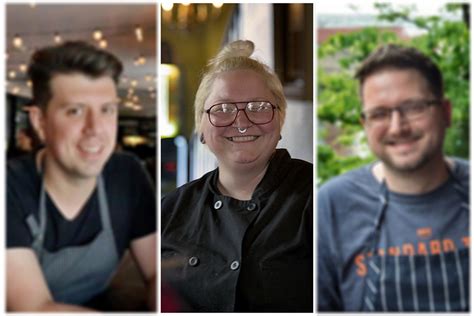A Quote by C. S. Lewis
All I am in private life is a literary critic and historian, that's my job...And I'm prepared to say on that basis if anyone thinks the Gospels are either legends or novels, then that person is simply showing his incompetence as a literary critic. I've read a great many novels and I know a fair amount about the legends that grew up among early people, and I know perfectly well the Gospels are not that kind of stuff.
Quote Topics
Related Quotes
I am perfectly convinced that whatever the gospels are they are not legends. I have read a great deal of legend and I am quite clear they are not that sort of thing....Christ bent down and scribbled in the dust with His finger. Nothing comes of this. No one has based any doctrine on it. And the act of inventing little irrelevant details to make an imaginary scene more convincing is purely a modern art.
A critic may reject some miracle stories as legendary, and not others, with no inconsistency at all for the simple reason that even if one holds miracles to be possible, one need not hold legends to be impossible! There are other factors, literary and historiographical ones, that might lead a critic to conclude that even though miracles can happen, it does not appear that in this or that case they did.
My literary criticism has become less specifically academic. I was really writing literary history in The New Poetic, but my general practice of writing literary criticism is pretty much what it always has been. And there has always been a strong connection between being a writer - I feel as though I know what it feels like inside and I can say I've experienced similar problems and solutions from the inside. And I think that's a great advantage as a critic, because you know what the writer is feeling.
In Pakistan, many of the young people read novels because in the novels, not just my novels but the novels of many other Pakistani writers, they encounter ideas, notions, ways of thinking about the world, thinking about their society that are different. And fiction functions in a countercultural way as it does in America and certainly as it did in the, you know, '60s.
Most beginning writers - and I was the same - are like chefs trying to cook great dishes that they've never tasted themselves. How can you make a great - or even an adequate - bouillabaisse if you've never had any? If you don't really understand why people read mysteries - or romances or literary novels or thrillers or whatever - then there's no way in the world you're going to write one that anyone wants to publish. This is the meaning of the well-known expression "Write what you know."
One of the best and most challenging books about Orwell is by the socialist literary critic Raymond Williams. As a critic - and, in some ways, as a figure, at least within the academy - Williams was what England had in the generation after Orwell, and toward the end of his life, he became more critical of his predecessor.
I often say to my students in workshops that if they are trying to find literary inspiration, they should not go and read novels, because novels are more appropriate for series. Where as they should read short stories - that's the right format for you to be able to actually display the narrative in a film.
I am an Episcopalian who takes the faith of my fathers seriously, and I would, I think, be disheartened if my own young children were to turn away from the church when they grow up. I am also a critic of Christianity, if by critic one means an observer who brings historical and literary judgment to bear on the texts and traditions of the church.
Sometimes Joyce is hilarious. I read Finnegans Wake after graduate school and I had the great good fortune of reading it without any help. I don't know if I read it right, but it was hilarious! I laughed constantly! I didn't know what was going on for whole blocks but it didn't matter because I wasn't going to be graded on it. I think the reason why everyone still has so much fun with Shakespeare is because he didn't have any literary critic. He was just doing it; and there were no reviews except for people throwing stuff on stage. He could just do it.
The trouble with Christianity was that by about 150, there were hardly any Jews left in the Christian church, and so from that time until the last part of the twentieth century, the only people reading the gospels and interpreting the gospels and writing commentaries on the gospels were gentiles who were simply ignorant of the Jewish background, and I just thought they were prejudiced.
You find very few critics who approach their job with a combination of information and enthusiasm and humility that makes for a good critic. But there is nothing wrong with critics as long as people don't pay any attention to them. I mean, nobody wants to put them out of a job and a good critic is not necessarily a dead critic. It's just that people take what a critic says as a fact rather than an opinion, and you have to know whether the opinion of the critic is informed or uninformed, intelligent of stupid -- but most people don't take the trouble.




































